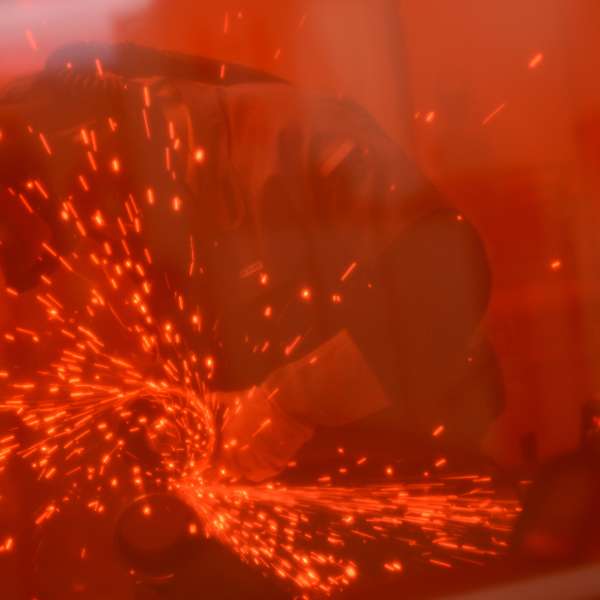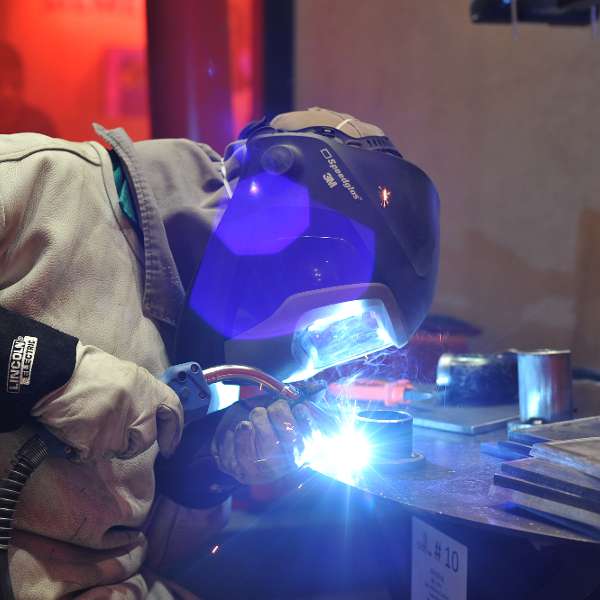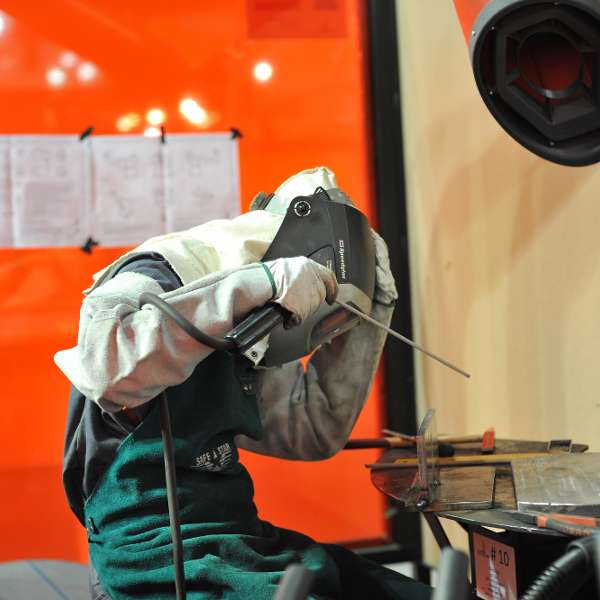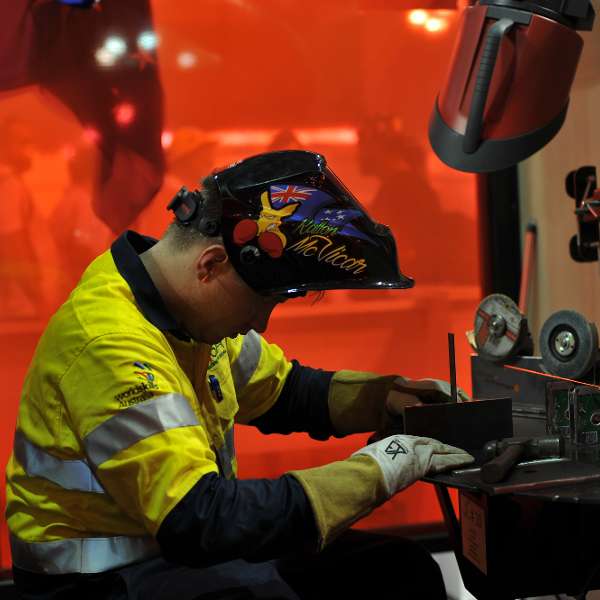Language
Skills are always changing
For the latest information about this skill visit Welding on worldskills.org.
Welding
Preparing and joining various types of metal, using both electrical and electric/gas processes.
Why is this skill important?
A welder interprets engineering working drawings, standards and symbols to prepare and join a range of metals of various gauges using electrical and electrical/gas shielded processes.
Welding professionals need to have a thorough knowledge and understanding of various welding equipment and processes, metallurgy, and electrical processes in order to choose correctly from among them depending on the material being joined. Also very important: they need to thoroughly understand safe working procedures and personal protection equipment.
The skill set of an expert welder is broad; so, too, is the range of industries in which a welder can work, including civil engineering, mechanical engineering, transport, marine engineering, and construction, service and leisure industries. A welder has opportunity to work in diverse locations and situations, ranging from a bench in a factory, to shipyards, power stations, petro-chemical plants, and off-shore gas or oil rigs or terminals.
Today’s expert welder has options to specialize in one or a number of welding processes and environments, and may train to work with exotic alloys. Modern welding is evolving quickly, and currently includes exploration into the exciting field of ”virtual” welding.
Could this skill be for you?
If you like:
- Fixing things
- Making things
- Craftsmanship
- Using tools
You should also take a look at:
The Challenge
Important elements of the challenge include:
-
Welders join sections, pipe and plate and fabricate large and small pressure vessels.
-
Under timed conditions, each Competitor will prepare and finish different welded joints.
-
A familiarity with electricity and electrical processes is beneficial for this Skill.
-
Marks are awarded to those who accurately follow specific assessment criteria.
Skill sponsors
Results
| Medal | Result | Competitor | Country/region |
|---|---|---|---|
| Gold | 737 | Xianhai Ning | China |
| Silver | 733 | YEONGJU PARK | Korea |
| Silver | 731 | Junya Kasagi | Japan |
| Bronze | 730 | JIAN-HONG LIN | Chinese Taipei |
| Medallion for Excellence | 728 | Chandler Vincent | United States of America |
| Medallion for Excellence | 722 | MUHAMMAD ZULHILMI MOHD SABERI | Malaysia |
| Medallion for Excellence | 721 | Dylan Bolch | Australia |
| Medallion for Excellence | 721 | Vadim Mindigaliev | Russia |
| Medallion for Excellence | 718 | Santi Chookaew | Thailand |
| Medallion for Excellence | 717 | Brent Koekkoek | Netherlands |
| Medallion for Excellence | 716 | Josh Peek | United Kingdom |
| Medallion for Excellence | 715 | Andrew Christensen | Canada |
| Medallion for Excellence | 712 | Rafael Dário | Brazil |
| Medallion for Excellence | 707 | Daniel Zaja | Hungary |
| Medallion for Excellence | 704 | Eoin Shortall | Ireland |
| Medallion for Excellence | 704 | Alireza Badri | Iran |
| Medallion for Excellence | 700 | Pieter Saman | Belgium |
| Medallion for Excellence | 700 | Janlav-Oidov Jadamba | Mongolia |
| 697 | Andrew Champion | New Zealand | |
| 695 | David Blank | Austria | |
| 692 | Severin Seiler | Switzerland | |
| 690 | Mahmoud Alnouimi | United Arab Emirates | |
| 690 | Jon Arne Hjelmstadbakk | Norway | |
| 689 | Omkar Virendra Savant | India | |
| 680 | Philippus Terblanche | South Africa | |
| 677 | SIARHEI MATSKEVICH | Belarus | |
| 677 | Joakim Carlsson | Sweden | |
| 670 | FERNANDO GONZÁLEZ | Spain | |
| 652 | Rizal Hafizhi | Indonesia | |
| 649 | Sajad Aljarash | Saudi Arabia | |
| 644 | Alexandr Sagel | Kazakhstan | |
| 637 | Ali Mohamed | Kingdom of Bahrain | |
| 635 | Salman Alshammari | Kuwait | |
| 633 | Jimmy Chipokosa | Zambia | |
How to compete
To reach the level of skills required to compete in a WorldSkills Competition takes several years of training and dedication. But the best time to start is now.
Find out more about how to take part in a WorldSkills Competition.











